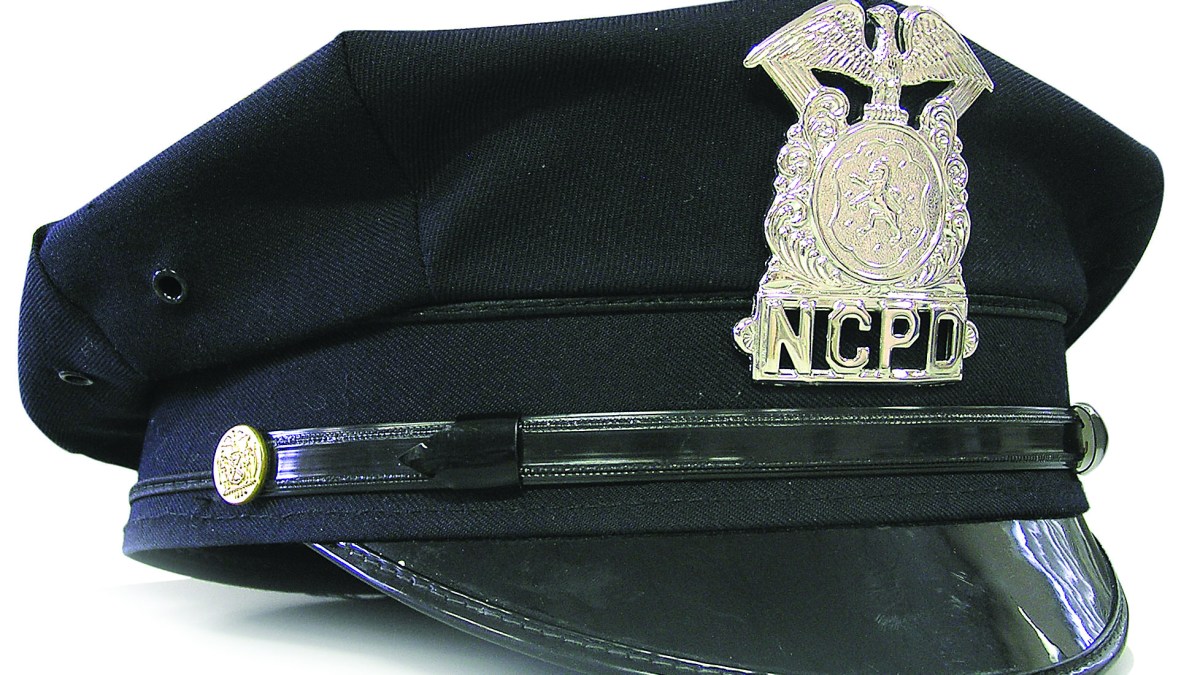Representatives of a police research think tank is holding its first meetings with Nassau County officials this week to discuss reforming the county police department’s ethics policy following a string of scandals.
Police Executive Research Forum (PERF), the Washington D.C.-based nonprofit, is likely to recommend the creation of an ethics review board, use of transparency devices and updating training procedures, according to a Press review of PERF’s prior reports on other law enforcement agencies.
“Ninety-nine percent of our officers have a moral compass,” Thomas Krumpter, the acting Nassau County police commissioner, told the Press. “That’s not the problem. But, we’re always looking to improve our relationship with the community.”
PERF representatives, who declined to comment, will meet with key stakeholders, including County Executive Edward Mangano, District Attorney Kathleen Rice and county legislators, according to Krumpter. The county hired the agency last month for $675,000.
The firm will also poll local community leaders about police ethics, Krumpter said. The process of changing the ethics code will take about five to six months, and the training process for executives and administrators will take about 18 months.
John Kleinig, a professor at John Jay College of Criminal Justice and a fellow at the Centre for Applied Philosophy and Public Ethics, said in an email that PERF’s recommendations are likely to be general rather than case-specific.
“It might, however, recommend the setting up within a particular police department the functional equivalent of a hospital IRB, which considers specific cases within a police department,” he said.
An IRB, or institutional review board, is a committee that monitors ethic issues involving the use of humans as research subjects. Nassau police critics have called for a civilian complaint review board, similar to one in New York City.
PERF may make recommendations on use-of-force policies in light of allegations that Nassau County police officers beat a Westbury man during a traffic stop last month. But, Newsday reported last month that the department already began revamping its use-of-force policy for the first time in nearly 30 years.
PERF will likely be lending a hand with that. In a July 2013 report titled “Civil Rights Investigations of Local Police: Lessons Learned,” PERF listed requirements from the U.S. Department of Justice for local police agencies’ use-of-force policies, including defined categories of force, consequences for unreasonable use of force, and a reporting system for use-of-force incidents.
PERF produced a report on U.S. Customs and Border Protection last year after a controversy emerged over Border Patrol officers’ use of lethal force in recent years. In it, PERF recommended additional training for agents on personal protection and the use of less-lethal weapons.
“Training is especially important to the successful implementation of policy changes,” the report read. “In training, agents should be informed about the reason for changes in policy.”
PERF might recommend training that will enable police officers to deal with adrenaline rushes, “a common problem when police pull someone over after a chase or catch someone after a foot pursuit,” Kleinig said.
PERF also recommended in 2011 that the Albuquerque Police Department improve its citizen complaint process to make the process less “intimidating or discouraging.”
Heath Grant, another professor at John Jay College, said that ethics consultants often recommend the use of body cameras to capture the actions of the officers.
“Body cameras can back up and protect the officers,” he said. “They’re not necessarily used from a punitive angle.”
Nassau County police had announced the creation of a dashboard and body camera pilot program earlier this month, hours after Democrats from the county legislature held a news conference promoting a proposal to do the same thing.
Freeport village police have had four body cams and eight dash cams since a parallel pilot program launched there in January, according to District Attorney Rice’s office, which gave $108,000 in Asset Forfeiture funding. That will afford 30 more body cams and 11 more dash cams.
“These cameras have proven to be an extremely beneficial tool in fighting crime, providing better policing and supporting crime victims,” Freeport Police Department Chief Miguel Bermudez said in a news release. Rice touted their benefits in providing more evidence for prosecutors.
PERF was hired in the wake of several recent Nassau police scandals, including three former commanders’ recent misconduct convictions for a burglary cover-up in 2009, ex-commissioner Thomas Dale’s resignation over a politically motivated arrest last year, and ex-cop Michael Tedesco’s pleading guilty last month to on-duty visits to his mistresses.
Such ethical issues among police officers are multifaceted and cannot be fixed with one simple solution, according to Grant.
“You need to look at recruitment and assessing the quality of each candidate as well as the training process and teaching integrity to the officers, but most important is top-down policies and guidelines for behavior,” he said.
However, some aspects of the agency will be left untouched by PERF. The organization will not be making any changes in administration or the size of the police force, Krumpter said. Departments that PERF has recommended hire more cops include those in Fayetteville, North Carolina; Groton, Conn.; Fort Lee, New Jersey; and Austin, Texas.
For now, Krumpter is still the acting police commissioner, and PERF will not be looking for a successor for Dale, even though PERF offers a national search service for police chief candidates. Krumpter, who previously served as acting commissioner for nine months in 2011, resumed the same role in January.
“That’s not what this engagement is about,” Krumpter said. “It’s just about changing the ethics code.”
































